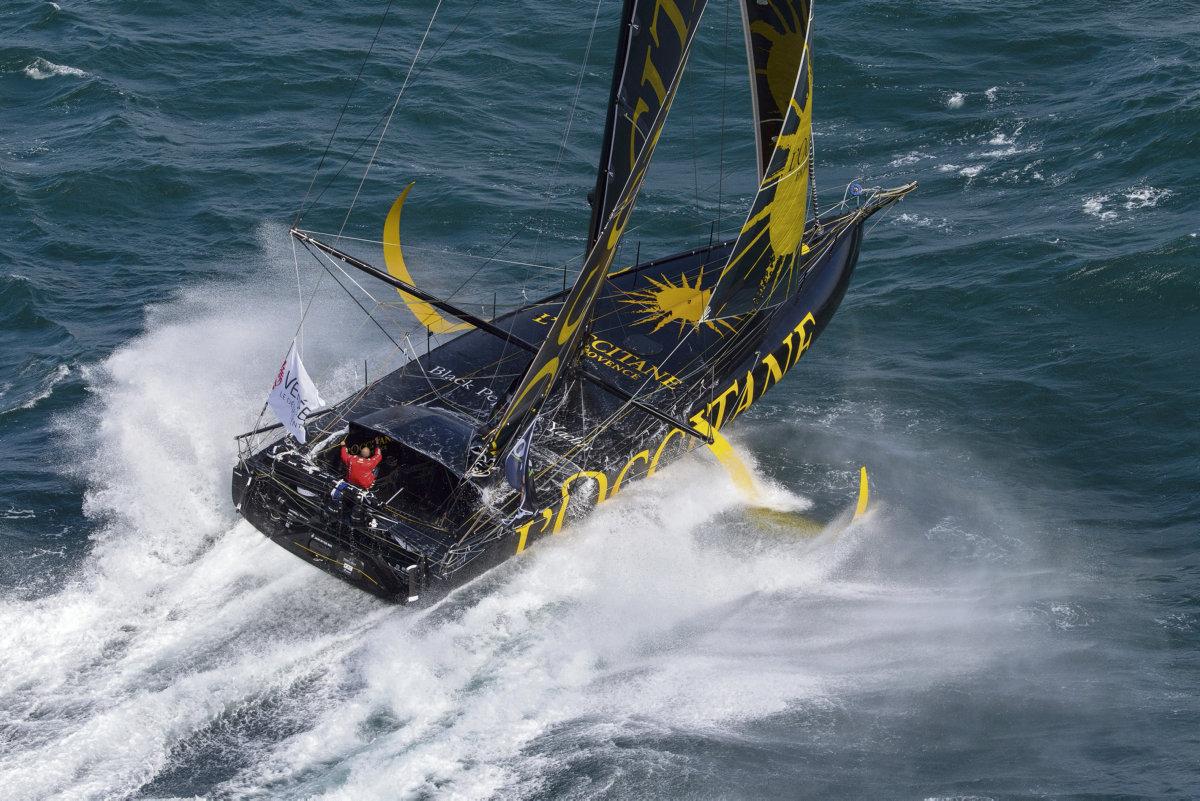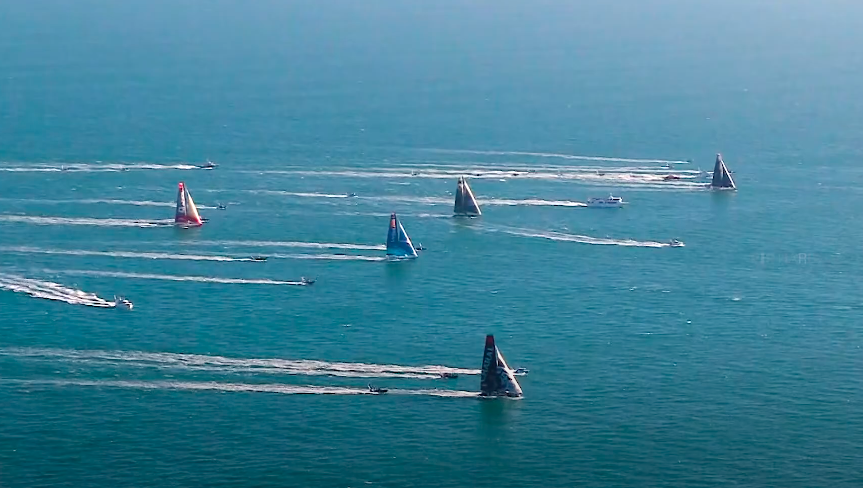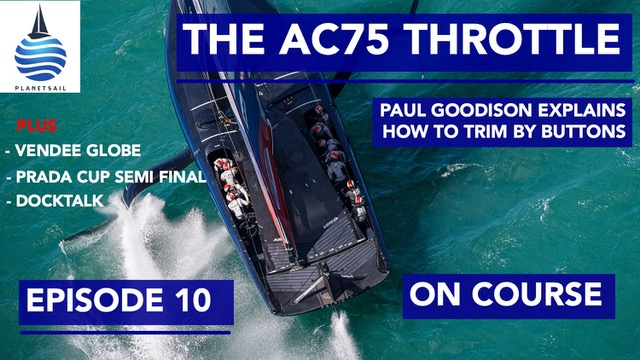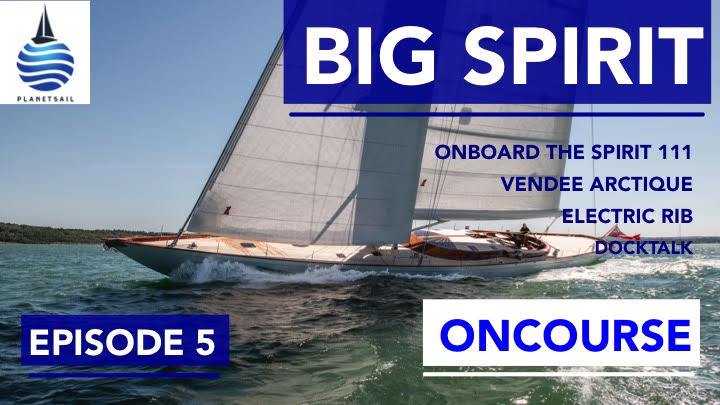Roll Tacks - January 2013
Who can read about the disqualification of Bernard Stamm from the Vendée Globe and feel anything but sympathy for the Swiss sailor? Half way through the Southern Ocean and he pulls in to the Auckland Islands for repairs, and without requesting it receives minimal outside assistance from a Russian scientific research ship. A bit harsh of the International Jury to disqualify him, don’t you think? Yes, undeniably harsh, but it’s not the job of juries to apply emotion to their decisions. Their role is to look at the facts dispassionately and come to a conclusion based on the rules of the race.
The problem for Stamm is that the rules of the Vendée Globe are incredibly harsh. But that is what makes this race so special. Singlehanded, non-stop, no outside assistance. Such draconian regulations are what have led to incredible stories such as when Yves Parlier broke his mast while leading the Vendée Globe in 2000. But did he retire? No, he spent the next 10 days repairing his rig using plastic containers as a makeshift oven for bonding the mast sections back together. Then he had to get the mast upright again, unaided. Completing the race, albeit far from winning it, Parlier became a national hero.
As I write, there may yet be a happier end in store for Stamm as he appeals against the disqualification, and fingers crossed for the Swiss sailor. His plight reminded me of the 49er medal race at the 2008 Olympics; you know, THAT race that you’ve no doubt watched on YouTube. Super-windy and wavy. The Danish team all but had the gold medal in the bag even before the medal race began. Then, while hoisting their kite, the sail caught a wave and suddenly they were trawling the sail under the boat. Snap went the mast. Rushing ashore, they hastily secured the loan of the Croatian boat, which was not in the medal race, and went out and crossed the start line well after the rest of the fleet. But they completed the course and won the gold.
Some of the other teams were furious that the Danes had become Olympic Champions under such extraordinary and controversial circumstances. Reporting from China that day, I have to admit I felt the Danes deserved the gold on pure merit, for sheer guts and determination. I praised the international jury for putting the spirit of competition ahead of the letter of the law. But four years on, as I think of Bernard Stamm and think back to Qingdao 2008, I wonder if the jury did make the correct decision after all.
As I said earlier, the unenviable role of the jury is to consider the facts dispassionately. The bare facts are that the Danes raced a Croatian boat that hadn’t gone through any of the pre-race measurement checks that the other nine boats had been through earlier in the day. Last summer I asked Iker Martinez about that race, the Spanish sailor having been awarded silver but still believing he should have won the second gold medal of his career. As Martinez pointed out to me, the Spanish would like to have done their customary pre-race check of hoisting the gennaker but, bearing in mind the risks involved in doing so in such a big and confused sea, decided to keep the big sail in the chute. The Danes, he argued, showed poor seamanship in hoisting their gennaker and subsequently breaking their mast. He has a point.
On such moments do Olympic fortunes turn, but no one has proven better at bending fortune to his iron will than Charles Benedict Ainslie. The knighting of Sir Ben provides the perfect postscript to a thrilling and controversial career. Here are some of my highlights:
1995 - An 18-year-old wins a British Olympic trials in Weymouth, beating a high-quality fleet that included Mark Littlejohn, Hugh Styles, Andrew Simpson and Iain Percy.
1996 - Still a teenager, Ben bounces back from a disastrous first day in Savannah to find himself in medal contention. In one race there is a windward mark incident between Ben and Robert Scheidt. Watching on TV, it doesn’t appear that there is a collision, yet BOTH sailors take a 720 turn as an insurance policy. Robert gets away first and Ben has a few sailors to overtake on the downwind legs to the finish. There is one moment where Ben all but tips the boat on top of him, so far that he puts one foot over the hull and onto the daggerboard. In bringing the boat upright he actually accelerates and surfs past a competitor. Gaining speed from a capsize? Sign of a rare talent in the making. But in the final race, the Brazilian suckers the Brit into crossing the line early. A black flag disqualification means the 19-year-old has to settle for silver. On TV, his father Roddy promises it will be gold in four years’ time. Well, it’s his dad! He would say that, wouldn’t he!
2000 - Four years later, Roddy’s bold prediction proves correct, as Ben pulls off the most audacious and brutal match race on... guess who? Yes, it’s that Brazilian again. (By the way, did you notice Richard Simmonds’ pronunciation of the Brazilian’s name on BBC TV last summer? ‘Scheidt’, with a silent ’t’.) Ben’s demolition of Robert is race-legal, but Robert feels cheated and it’s some years before he can bring himself to talk to Ben again.
2004 - As Ben has now moved into the Finn, there is no round 3 for the Ainslie v Scheidt saga, but he finds a new enemy in Guillaume Florent. Ben is disqualified after a port/starboard incident with the French sailor. TV footage suggests there was clear water between the two boats, but the DSQ stands. Suitably riled, Ben turns on the afterburners and blitzes the competition.
2008 - Surprisingly little to report from China. Ben avoids slipping on his customary banana skin on day one, and he never looks seriously threatened. The most straightforward of all Ben’s Olympic outings.
2012 - No cock-ups on day one, yet no spark either. Ben seems worryingly out of sorts. Journalists are predicting a palindromic Olympic career for Ben - silver, gold, gold, gold, silver. But then the Dane and the Dutchman make him angry and, as Ben tells the BBC: “They’ve made me angry - and you don't want to make me angry." Gold medal to Mr Angry.
2013 - Arise, Sir Ben.
The problem for Stamm is that the rules of the Vendée Globe are incredibly harsh. But that is what makes this race so special. Singlehanded, non-stop, no outside assistance. Such draconian regulations are what have led to incredible stories such as when Yves Parlier broke his mast while leading the Vendée Globe in 2000. But did he retire? No, he spent the next 10 days repairing his rig using plastic containers as a makeshift oven for bonding the mast sections back together. Then he had to get the mast upright again, unaided. Completing the race, albeit far from winning it, Parlier became a national hero.
As I write, there may yet be a happier end in store for Stamm as he appeals against the disqualification, and fingers crossed for the Swiss sailor. His plight reminded me of the 49er medal race at the 2008 Olympics; you know, THAT race that you’ve no doubt watched on YouTube. Super-windy and wavy. The Danish team all but had the gold medal in the bag even before the medal race began. Then, while hoisting their kite, the sail caught a wave and suddenly they were trawling the sail under the boat. Snap went the mast. Rushing ashore, they hastily secured the loan of the Croatian boat, which was not in the medal race, and went out and crossed the start line well after the rest of the fleet. But they completed the course and won the gold.
Some of the other teams were furious that the Danes had become Olympic Champions under such extraordinary and controversial circumstances. Reporting from China that day, I have to admit I felt the Danes deserved the gold on pure merit, for sheer guts and determination. I praised the international jury for putting the spirit of competition ahead of the letter of the law. But four years on, as I think of Bernard Stamm and think back to Qingdao 2008, I wonder if the jury did make the correct decision after all.
As I said earlier, the unenviable role of the jury is to consider the facts dispassionately. The bare facts are that the Danes raced a Croatian boat that hadn’t gone through any of the pre-race measurement checks that the other nine boats had been through earlier in the day. Last summer I asked Iker Martinez about that race, the Spanish sailor having been awarded silver but still believing he should have won the second gold medal of his career. As Martinez pointed out to me, the Spanish would like to have done their customary pre-race check of hoisting the gennaker but, bearing in mind the risks involved in doing so in such a big and confused sea, decided to keep the big sail in the chute. The Danes, he argued, showed poor seamanship in hoisting their gennaker and subsequently breaking their mast. He has a point.
On such moments do Olympic fortunes turn, but no one has proven better at bending fortune to his iron will than Charles Benedict Ainslie. The knighting of Sir Ben provides the perfect postscript to a thrilling and controversial career. Here are some of my highlights:
1995 - An 18-year-old wins a British Olympic trials in Weymouth, beating a high-quality fleet that included Mark Littlejohn, Hugh Styles, Andrew Simpson and Iain Percy.
1996 - Still a teenager, Ben bounces back from a disastrous first day in Savannah to find himself in medal contention. In one race there is a windward mark incident between Ben and Robert Scheidt. Watching on TV, it doesn’t appear that there is a collision, yet BOTH sailors take a 720 turn as an insurance policy. Robert gets away first and Ben has a few sailors to overtake on the downwind legs to the finish. There is one moment where Ben all but tips the boat on top of him, so far that he puts one foot over the hull and onto the daggerboard. In bringing the boat upright he actually accelerates and surfs past a competitor. Gaining speed from a capsize? Sign of a rare talent in the making. But in the final race, the Brazilian suckers the Brit into crossing the line early. A black flag disqualification means the 19-year-old has to settle for silver. On TV, his father Roddy promises it will be gold in four years’ time. Well, it’s his dad! He would say that, wouldn’t he!
2000 - Four years later, Roddy’s bold prediction proves correct, as Ben pulls off the most audacious and brutal match race on... guess who? Yes, it’s that Brazilian again. (By the way, did you notice Richard Simmonds’ pronunciation of the Brazilian’s name on BBC TV last summer? ‘Scheidt’, with a silent ’t’.) Ben’s demolition of Robert is race-legal, but Robert feels cheated and it’s some years before he can bring himself to talk to Ben again.
2004 - As Ben has now moved into the Finn, there is no round 3 for the Ainslie v Scheidt saga, but he finds a new enemy in Guillaume Florent. Ben is disqualified after a port/starboard incident with the French sailor. TV footage suggests there was clear water between the two boats, but the DSQ stands. Suitably riled, Ben turns on the afterburners and blitzes the competition.
2008 - Surprisingly little to report from China. Ben avoids slipping on his customary banana skin on day one, and he never looks seriously threatened. The most straightforward of all Ben’s Olympic outings.
2012 - No cock-ups on day one, yet no spark either. Ben seems worryingly out of sorts. Journalists are predicting a palindromic Olympic career for Ben - silver, gold, gold, gold, silver. But then the Dane and the Dutchman make him angry and, as Ben tells the BBC: “They’ve made me angry - and you don't want to make me angry." Gold medal to Mr Angry.
2013 - Arise, Sir Ben.
Related Articles

Paul Larsen - RORC Time Over Distance
Read More

Larsen discusses foiling technology in both the Vendée Globe and the forthcoming Match in the 46th America’s Cup...

Pip Hare - RORC Time Over Distance
Read More

Pip Hare shares her highs and lows with Louay Habib after her Vendée Globe success!

The AC75 Throttle - OnCourse Episode 10
Read More

Never has mainsheet trimming been quite so complex as it now is on an AC75...

Vendee Globe: More to Sam than meets the eye
Read More

Co-skipper of Initiatives Cœur in the last Transat Jacques Vabre, Paul Meilhat has continued to work alongside Samantha Davies throughout the year. The most recent winner of the Route du Rhum who is still looking for a budget for the Ocean Race, remains involved in all the different racing aspects of the project. With three weeks to go to the third start for the British sailor in the Vendée Globe, Paul looks at her strengths and weaknesses....

Video: OnCourse Ep. 5 – Big Spirit
Read More

The stunning Spirit 111 is up and running - and Matt Sheahan had her all to himself for the day…
